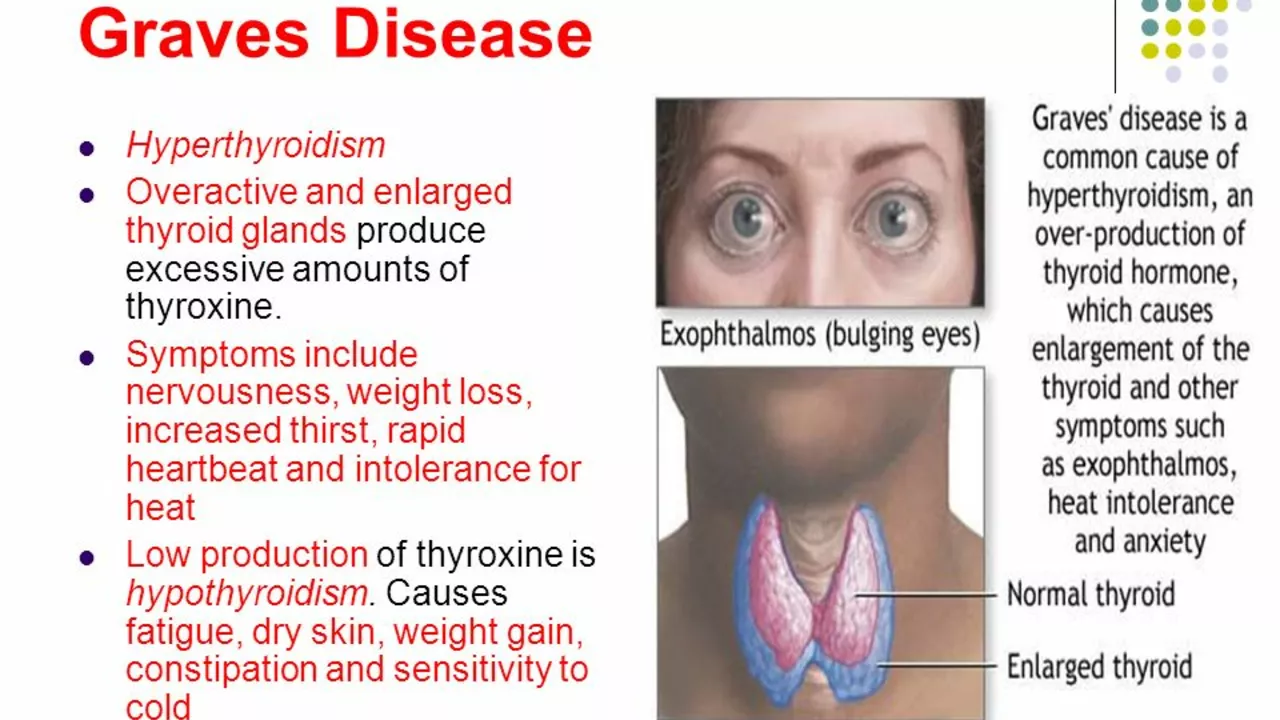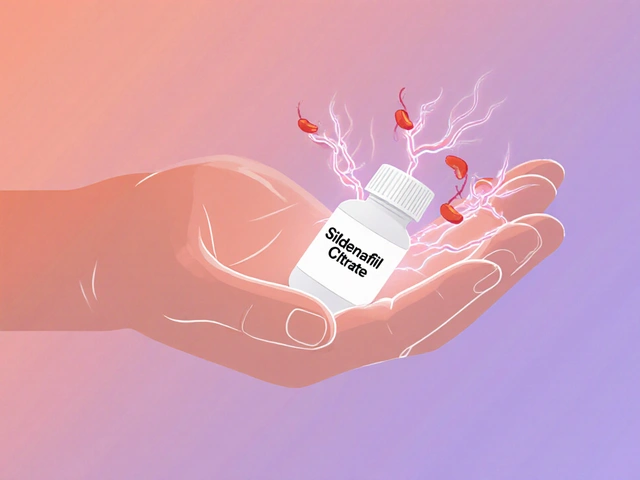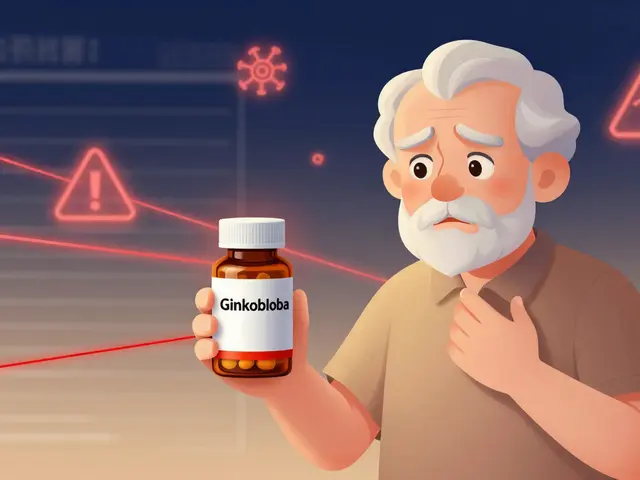Sildenafil Citrate and Chronic Pain: Could This Common Drug Help Beyond Erectile Dysfunction?
November 1 2025Hyperthyroidism: Spot It Early and Manage It
Your thyroid controls how fast your body runs. When it makes too much hormone, you can feel jittery, lose weight without trying, or sweat through a shirt. That’s hyperthyroidism. It’s common, treatable, and worth catching early so you don’t feel worn out or risk complications.
Recognize the signs
Symptoms can be obvious or sneak up slowly. Watch for a fast or irregular heartbeat, sudden weight loss despite a big appetite, trembling hands, heat sensitivity, extra sweating, and trouble sleeping. Mood changes like anxiety or irritability are common, and women may notice lighter or skipped periods. Some people get a visible goiter (a lump in the neck) or eye changes—bulging, dryness, or irritation—especially with Graves’ disease.
If you have unexplained weight loss, racing heart, or new severe anxiety, get checked. A single blood test that measures TSH and free T4/T3 is usually enough to spot hyperthyroidism.
Treatment options and practical tips
Treatment depends on cause and how severe it is. The usual medical options are:
- Antithyroid drugs: Methimazole is the most common. Propylthiouracil (PTU) is used in specific cases like early pregnancy. These lower hormone production but need regular blood tests to track dose and side effects.
- Radioactive iodine: A pill that shrinks or destroys part of the thyroid. It’s a one-time treatment for many people, but it often leads to low thyroid function later, which means lifelong hormone replacement.
- Surgery (thyroidectomy): Removes part or all of the thyroid. It’s chosen for large goiters, cancer risk, or if you can’t take other treatments. Recovery and follow-up are important.
- Symptom control: Beta-blockers like propranolol can calm a fast heart and shaky hands while other treatments kick in. They don’t fix the thyroid, but they make daily life easier.
Practical daily tips: skip extra iodine (no high-dose kelp or iodine supplements), cut back on caffeine if you’re anxious or shaky, eat regular meals to support energy levels, and protect your bones—hyperthyroidism speeds bone loss, so talk about calcium and vitamin D with your doctor. Rest when you need to and avoid heavy exercise during flare-ups.
Special notes: If you’re pregnant or planning pregnancy, tell your doctor—treatment choices change. Eye problems from Graves’ disease may need separate care from an eye specialist. And remember: radioactive iodine can lead to hypothyroidism later, which is treatable with standard thyroid pills like levothyroxine.
Want more on thyroid medicine? We have a hands-on comparison of desiccated thyroid vs. Synthroid that helps if you’re looking into replacement therapy after treatment.
If you spot signs or feel something off, arrange blood tests and talk to your doctor. Quick treatment usually puts symptoms under control and gets you back to normal life.
 28 Jun
28 Jun
Hyperthyroidism in Men: Symptoms, Diagnosis, and Treatment
In my latest post, I delved into the topic of hyperthyroidism in men, exploring symptoms, diagnosis, and treatment options. I learned that common symptoms range from unexplained weight loss, increased heart rate, nervousness, to excessive sweating. For diagnosis, doctors usually rely on physical exams, blood tests, and sometimes, imaging studies. The good news is, hyperthyroidism is treatable, with options including anti-thyroid medications, radioactive iodine, and surgery. It's vital for men to be aware of this condition, as early detection can make a significant difference in their treatment and recovery.
Read More...




